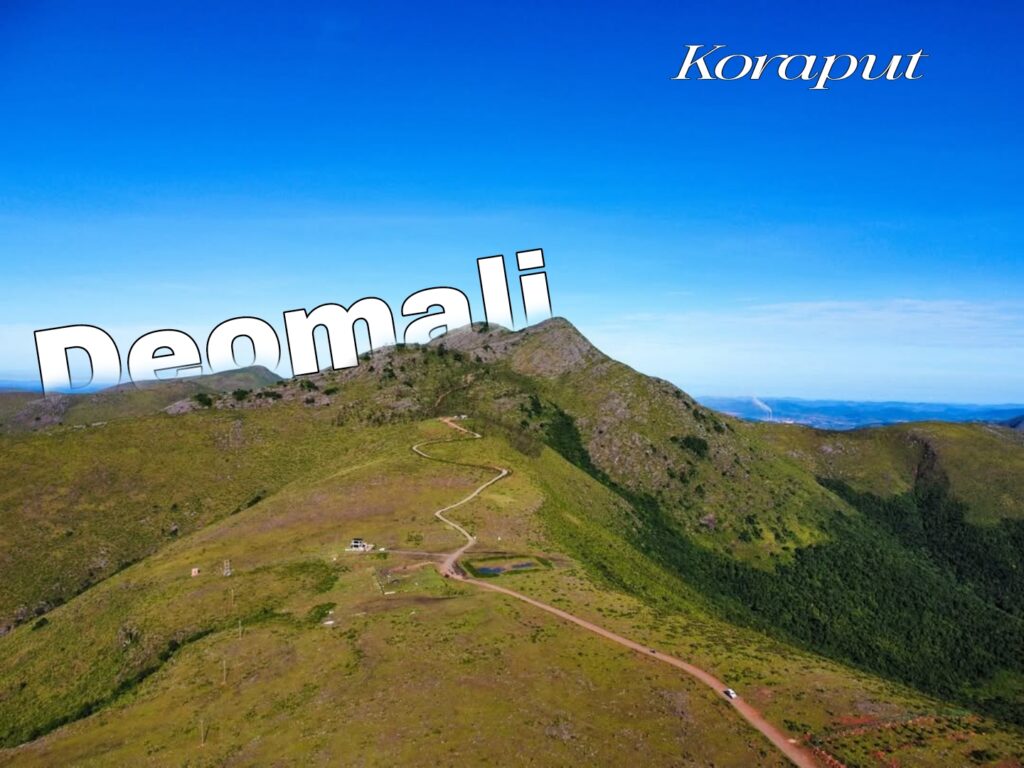
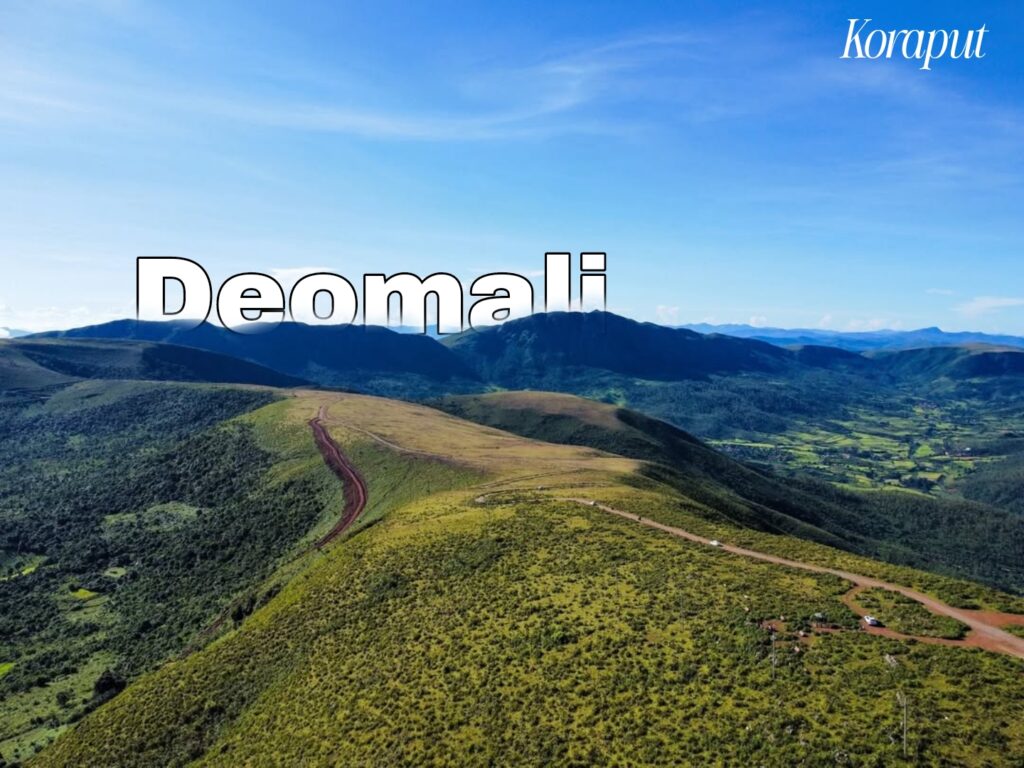
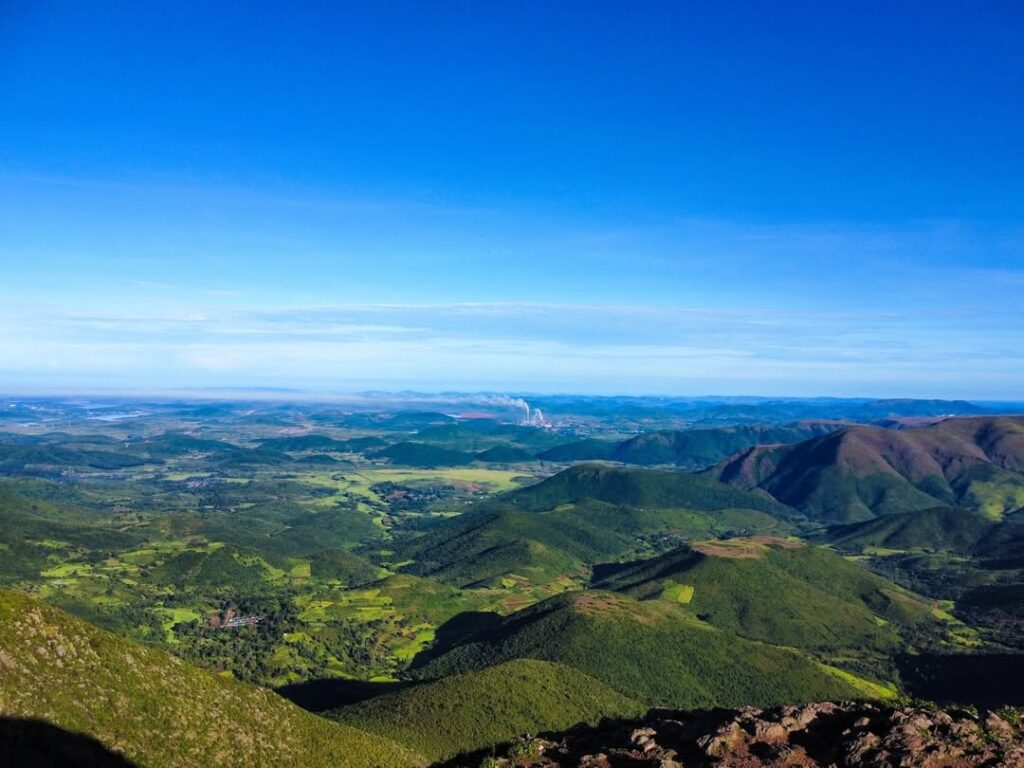
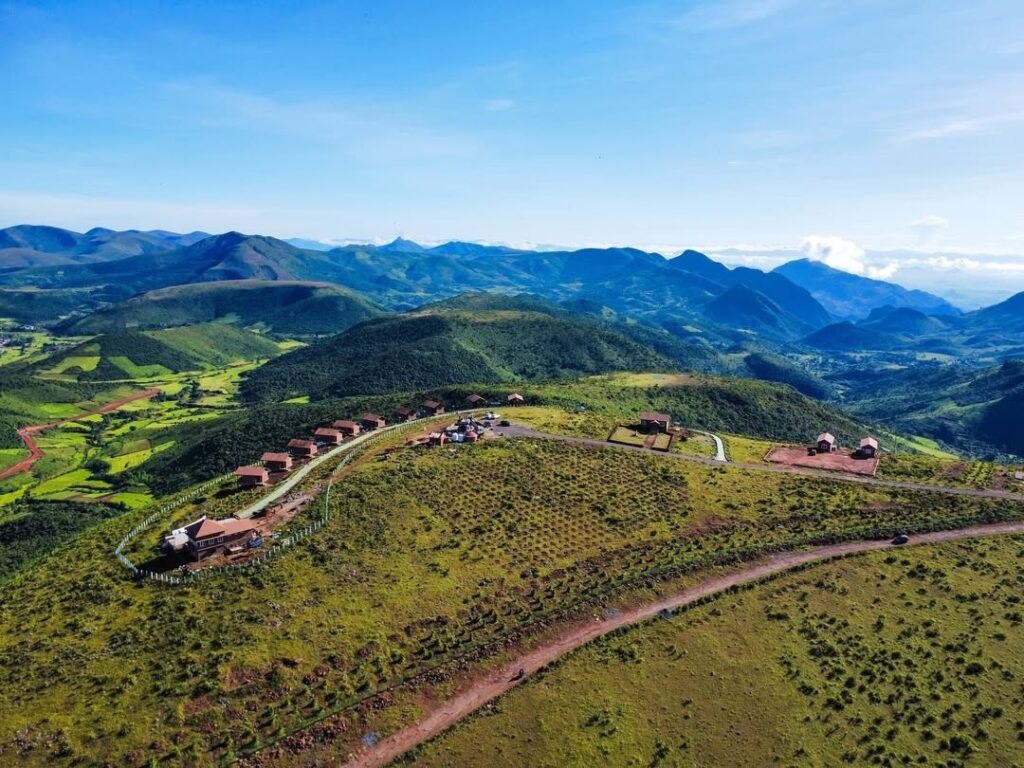
Deomali Hill: A Natural Marvel in Odisha. Deomali hill is a natural marvel in Odisha. This is the highest mountain peak in the Chandragiri-Pottangi Subrange of Estern Ghats. Nestled in the scenic Eastern Ghats of India, Deomali Hill is the highest peak in the state of Odisha, rising to an impressive height of 1,672 meters (5,489 feet) above sea level. It is located in the Koraput district of Odisha state in India. This towering peak is a treasure trove of natural beauty, biodiversity, and cultural significance. Deomali is Known for its picturesque landscapes, rolling valleys, and tranquil environment. Deomali is a must-visit destination for nature enthusiasts, trekkers, and adventurers alike. It also attract people for its natural beauty, greenary and peaceful environment.
Geographical Significance:
Deomali Hill is a part of the Eastern Ghats, a range of mountains that run parallel to the eastern coast of India. Unlike the Western Ghats, the Eastern Ghats are older and more fragmented, with rugged terrains and isolated peaks. Deomali stands out as a prominent peak in this range. It is surrounded by a mosaic of lush green forests, grasslands, and rocky outcrops. The hill offers a spectacular view of the valleys and plateaus below, making it a vantage point for appreciating the grandeur of Odisha’s natural landscapes. Deomali is located approximately 60 kilometers from Koraput town, and the hill is well-connected by road. Its geographical location makes it easily accessible while still maintaining its pristine and unspoiled charm. The Duduma Waterfalls and other scenic spots nearby enhance the allure of the region. This hill is reac in different mineral resources like limestone, bauxite, and gemstones etc.
Biodiversity
One of the most remarkable aspects of Deomali Hill is its rich biodiversity. The hill and its surrounding regions are home to various species of flora and fauna. Some of which are endemic to the Eastern Ghats. The forests here are classified as tropical deciduous forests, interspersed with patches of evergreen vegetation.
Flora:
The slopes of Deomali are dotted with a variety of plants, including medicinal herbs, wildflowers, and grass species. These plants not only contribute to the ecological balance of the region but also serve as a source of livelihood for the local tribal communities.
Fauna:
The region supports diverse wildlife, including birds, butterflies, reptiles, and small mammals. Birdwatchers can spot various species of native and migratory birds, making Deomali a haven for ornithologists. The untouched natural environment of Deomali plays a crucial role in maintaining the ecological balance of the region and provides a habitat for many rare and endangered species.
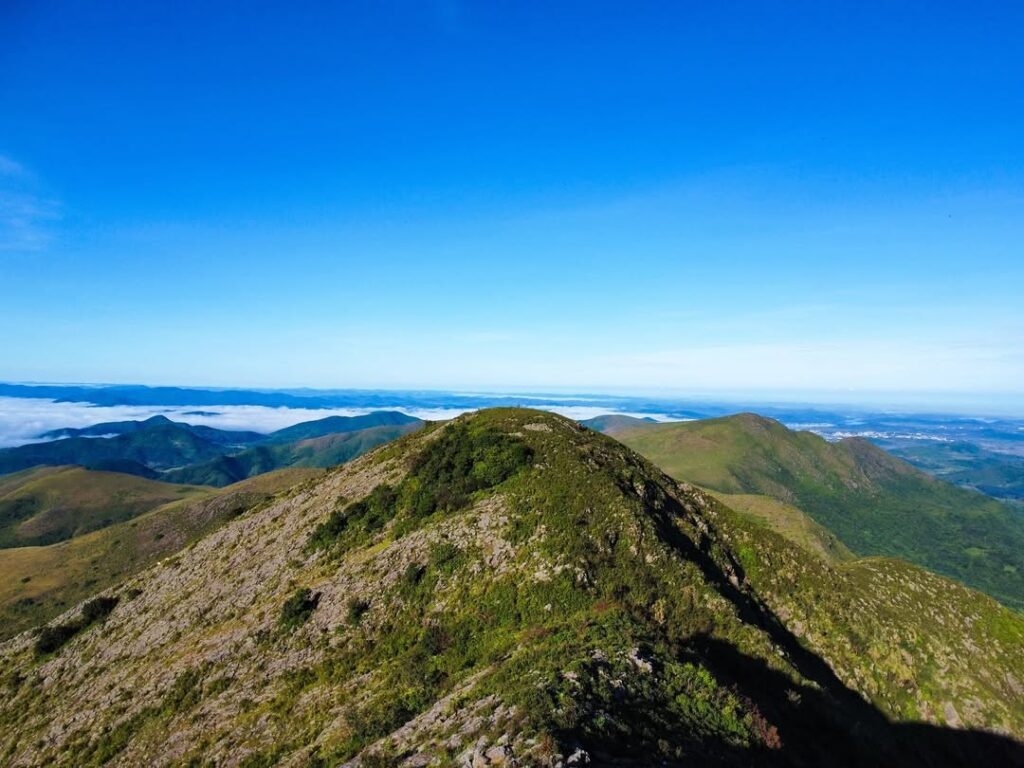
Adventure and Tourism
Deomali Hill has emerged as a popular destination for adventure sports and ecotourism. The rugged terrain and cool climate make it ideal for a range of activities, such as:
Trekking:
Trekkers flock to Deomali to explore its trails, which offer varying levels of difficulty. The climb to the peak is a rewarding experience, with panoramic views of the surrounding valleys, forests, and plateaus.Rock Climbing:The rocky outcrops of Deomali provide the perfect setting for rock climbing and rappelling, attracting adventure enthusiasts from across the country.
Paragliding:
The hill’s open spaces and steady winds make it an excellent site for paragliding. Soaring above the valleys offers a bird’s-eye view of the breathtaking landscapes below.
Camping:
With its serene environment and star-lit skies, Deomali is a favored spot for camping. Tourists can pitch tents and immerse themselves in the tranquility of nature.In addition to adventure activities, Deomali is also a popular spot for photography. The play of light and shadow on the hills, combined with the vibrant greenery, creates picture-perfect moments for visitors.
Cultural and Tribal Connection
The Koraput district, where Deomali is located, is home to several tribal communities, including the Bonda, Paraja, Gadaba, and Kondh tribes. These communities have lived in harmony with nature for centuries and have a deep cultural and spiritual connection to the land.Deomali holds significant cultural importance for these tribes, who consider it a sacred site. The tribal way of life, which revolves around agriculture, hunting, and the use of medicinal plants, provides a unique glimpse into their traditions and sustainable practices.Visitors to Deomali often have the opportunity to interact with the local tribal population and learn about their customs, festivals, and handicrafts. The vibrant weekly markets in nearby villages are a great place to experience the rich tribal culture and purchase locally made artifacts.
Environmental Challenges
Despite its pristine beauty, Deomali faces several environmental challenges. The increasing footfall of tourists has raised concerns about the impact of human activity on the fragile ecosystem. Issues such as littering, deforestation, and unregulated tourism pose a threat to the biodiversity of the region.Efforts are being made to promote sustainable tourism and raise awareness about the need to preserve Deomali’s natural heritage. Ecotourism initiatives, including the involvement of local communities in conservation efforts, are steps in the right direction.
Accessibility and Facilities
Deomali is well-connected by road, and the nearest town, Koraput, serves as the gateway to the hill. The nearest railway station is in Koraput, while the closest airport is in Visakhapatnam, approximately 200 kilometers away.While the hill itself does not have extensive facilities, visitors can find accommodation in Koraput or nearby towns. Basic amenities, such as small eateries and shops, are available along the route to the hill.
Best Time to Visit
The ideal time to visit Deomali is during the winter months (October to February), when the weather is cool and pleasant. The monsoon season (June to September) transforms the landscape into a verdant paradise, but heavy rains can make the terrain slippery and challenging to navigate.Deomali Hill is more than just the highest peak in Odisha; it is a testament to the natural and cultural richness of the region. Its towering height, diverse biodiversity, and serene environment make it a haven for nature lovers and adventurers. At the same time, it offers a unique opportunity to connect with the tribal heritage of the area.As a symbol of Odisha’s ecological and cultural diversity, Deomali stands as a reminder of the need to balance tourism with conservation. With proper care and sustainable practices, this natural marvel can continue to inspire and enchant generations to come. Whether you seek adventure, tranquility, or cultural exploration, Deomali promises an unforgettable experience.
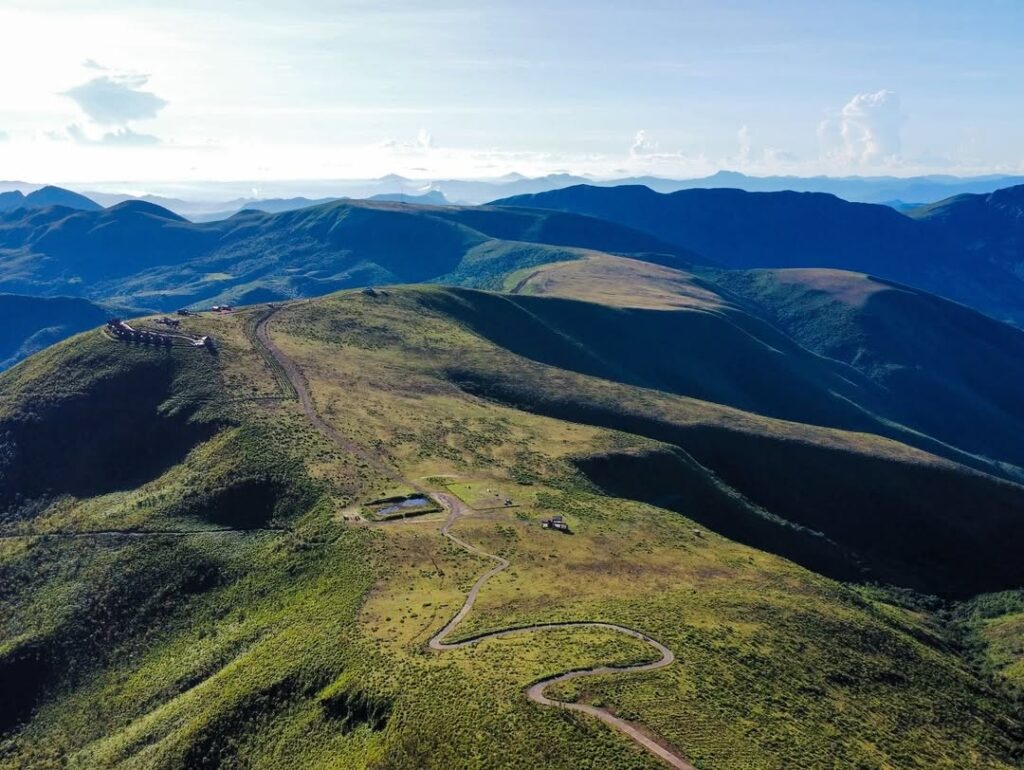
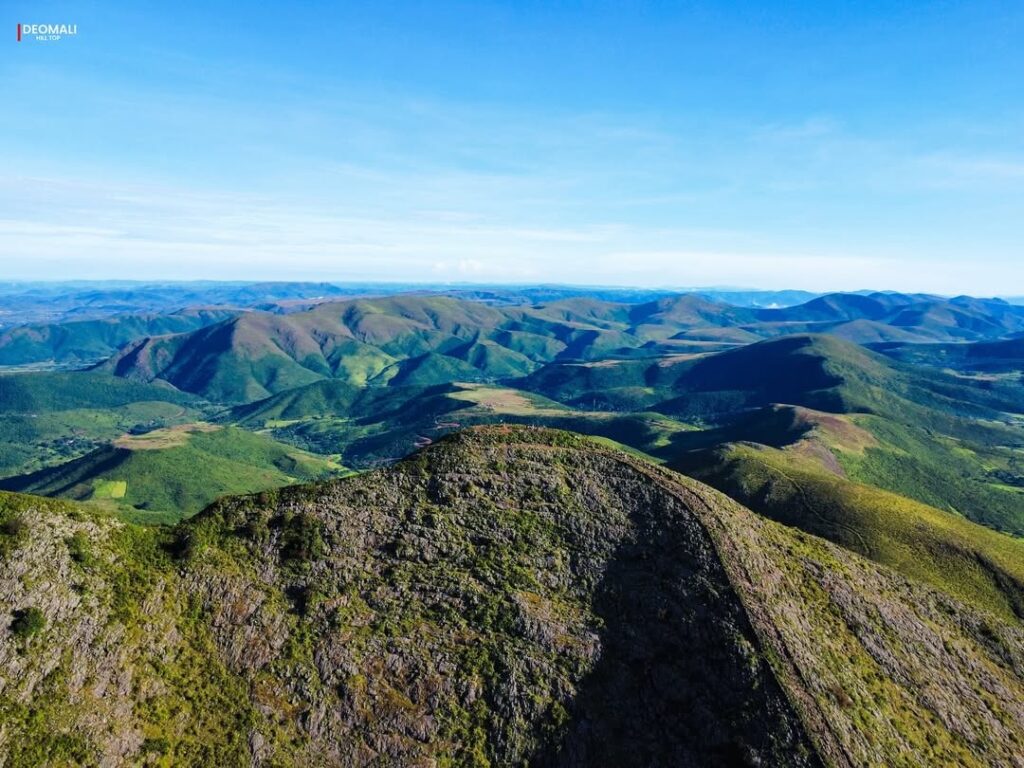
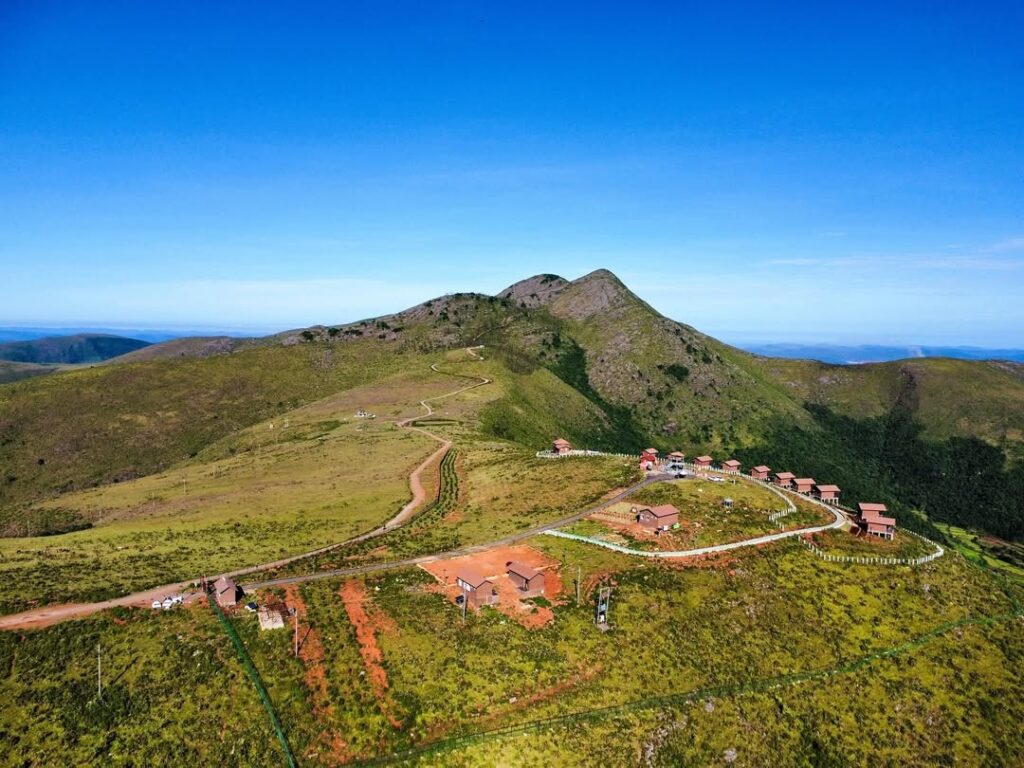
Other Tourist places to visit
Patora Dam and Yogeshwar Temple, Nuapada, Odisha
Follow our Facebook page